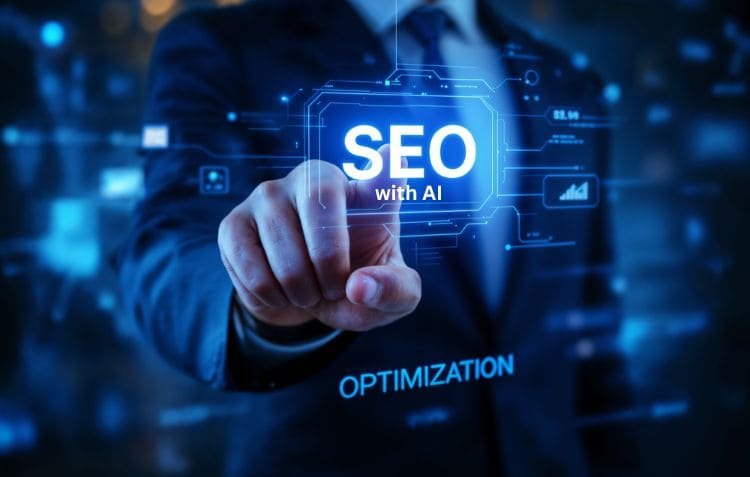Search engine optimization (SEO) is no longer just a technical endeavor—it’s a strategic pillar of digital marketing. However, as businesses grow, so do the complexities of managing SEO tasks, especially when working within agile frameworks. This is where artificial intelligence (AI) steps in, offering innovative tools that simplify, optimize, and scale SEO efforts seamlessly.
But why does this matter now more than ever? According to a study by BrightEdge, over 60% of marketers believe that AI will be critical to their marketing strategy in the next few years. Additionally, businesses adopting agile marketing principles are 70% more likely to adapt successfully to market changes, according to research by CMO Council. AI SEO tools bridge the gap, empowering teams to act swiftly, collaborate effectively, and deliver measurable results.
This guide explores how AI SEO tools scale agile solutions, providing an in-depth look at the tools, strategies, and actionable steps you can take to transform your SEO game while keeping pace with ever-evolving search algorithms.
What Are AI SEO Tools?
Definition and Core Features
AI SEO tools are advanced platforms that utilize artificial intelligence to enhance and automate key SEO processes. Unlike traditional tools, which rely on manual input and limited data analysis, AI-powered tools use machine learning, natural language processing (NLP), and predictive analytics to perform tasks more efficiently.
Key Features of AI SEO Tools:
- Keyword Research: AI analyzes search behavior and trends to uncover high-performing keywords tailored to your audience.
- Content Optimization: Advanced NLP algorithms identify gaps and suggest improvements for better alignment with search intent.
- Competitor Analysis: AI tools provide insights into what competitors are doing right, helping you refine your strategy.
- Performance Tracking: Real-time dashboards monitor metrics such as organic traffic, rankings, and backlinks.
Practical Tips:
- Use SEMrush or Ahrefs for comprehensive SEO management.
- For niche-specific content optimization, try Clearscope or Surfer SEO.
The Role of AI in SEO
AI fundamentally changes how marketers approach SEO by making it smarter and more efficient. For example, Google’s RankBrain uses AI to better understand search queries and match them with relevant results. AI SEO tools mimic these capabilities, enabling you to optimize content in ways that align with search engine algorithms.
Real-World Example:
A startup used AI-driven keyword research tools to identify untapped long-tail keywords. Within six months, their organic traffic doubled, showcasing the transformative potential of these tools.
Why Agile Solutions Need AI SEO Tools
The Importance of Agile in Marketing
Agile marketing emphasizes flexibility, collaboration, and incremental progress. Teams work in short sprints, continuously testing and refining strategies based on real-time feedback. While this approach enables faster adaptation, it can be resource-intensive when applied to SEO. Manual keyword research, performance tracking, and content creation often slow down the process, making it harder to keep pace.
Key Agile Marketing Principles:
- Iterative Workflows: Breaking large projects into smaller, manageable tasks.
- Collaboration: Cross-functional teams work together to deliver cohesive strategies.
- Continuous Improvement: Regular analysis and refinement of campaigns.
How AI SEO Tools Empower Agile Teams
AI SEO tools enhance agile processes by automating repetitive tasks, delivering actionable insights, and fostering team collaboration.
Example in Action:
An e-commerce business implemented MarketMuse to automate content ideation. Within two months, the team reduced their content creation cycle by 50%, allowing them to produce more high-quality pages aligned with agile principles.
Actionable Steps for Teams:
- Leverage AI for automated competitor research during sprint planning.
- Use real-time data from tools like BrightEdge to adapt campaigns mid-sprint.
- Implement centralized dashboards for better team collaboration.
Top AI SEO Tools for Scaling Agile Solutions
Selecting the right AI SEO tools is crucial for achieving scalability and efficiency in agile workflows. Below is a detailed look at some of the top tools and their unique capabilities.
1. Comprehensive SEO Platforms
- SEMrush: Offers all-in-one capabilities, including keyword research, backlink analysis, and performance tracking.
- Ahrefs: Specializes in in-depth competitor analysis and technical audits.
Actionable Tip: Use SEMrush’s “Keyword Magic Tool” to identify content gaps and opportunities.
2. Content Optimization Tools
- Surfer SEO: Recommends content structure and semantic terms based on top-ranking pages.
- Clearscope: Analyzes content relevance using NLP to boost search engine visibility.
Use Case Example: A SaaS company used Surfer SEO to restructure its blog content, leading to a 35% increase in time-on-page metrics within three months.
3. Automation and Analytics Tools
- BrightEdge: Provides AI-powered recommendations for improving content and tracking ROI.
- MarketMuse: Automates content planning and topic research, helping agile teams focus on execution.
Pro Tip: Combine BrightEdge with agile retrospectives to evaluate what worked well and refine strategies.
How AI SEO Tools Enhance Agile Processes

1. Automating Keyword Research
AI SEO tools like Ahrefs simplify keyword research by identifying trends and opportunities faster than manual methods. This automation saves time and ensures your team targets the most impactful keywords.
Actionable Tip:
Focus on long-tail keywords with lower competition but high conversion potential.
2. Improving Content Creation and Optimization
AI tools analyze user intent and recommend changes in tone, structure, and keyword usage. For example, Clearscope uses AI to suggest semantic terms, helping your content rank higher.
Practical Advice:
Use tools like Surfer SEO to create content outlines that align with search engine expectations.
3. Real-Time Performance Tracking
AI SEO tools provide dashboards that allow marketers to track rankings, traffic, and backlinks in real time. Agile teams can use this data to adjust strategies during sprints, ensuring goals are met.
Example Insight:
BrightEdge’s real-time tracking helped a travel blog refine its content calendar, resulting in a 20% traffic increase.
4. Enhancing Team Collaboration
Agile thrives on cross-functional collaboration, and AI SEO tools enable teams to work from shared platforms. With features like task assignments and integrated communication, tools like SEMrush and BrightEdge ensure seamless workflows.
Actionable Strategy:
Integrate AI SEO tools with project management platforms like Trello or Asana for maximum efficiency.
Overcoming Challenges with AI SEO Tools
Adopting AI SEO tools comes with its challenges, but businesses that understand and address these obstacles can fully unlock the potential of these technologies.
1. High Initial Costs
Many AI tools require significant upfront investment, which can be daunting for small and medium-sized businesses. However, companies can mitigate this by:
- Starting with free or low-cost versions of tools to test their value.
- Prioritizing tools that address specific pain points in their SEO strategy, like keyword research or content optimization.
- Evaluating return on investment (ROI) by tracking improvements in organic traffic and conversions over time.
2. Learning Curve and Training Needs
AI SEO tools often come with complex interfaces or features that require training to use effectively. This challenge can be managed by:
- Choosing tools with extensive documentation and customer support.
- Providing regular training sessions for team members, ensuring everyone understands the tool’s capabilities.
- Assigning an AI SEO “champion” on the team to lead the adoption process and offer guidance to others.
3. Over-Reliance on Automation
While automation is a key strength of AI, over-relying on it can lead to cookie-cutter strategies or missed opportunities for creative content. Businesses can avoid this by:
- Balancing AI-driven recommendations with human creativity and insight.
- Using AI for repetitive tasks like technical audits or data analysis, while focusing human efforts on content strategy and storytelling.
- Periodically reviewing AI-generated content to ensure alignment with brand voice and audience needs.
4. Data Privacy and Security Concerns
AI tools often require access to large amounts of data, which raises privacy concerns. To address this:
- Choose tools from reputable vendors with robust security protocols.
- Stay compliant with data protection regulations like GDPR or CCPA to safeguard user information.
- Conduct regular audits of how AI tools use and store your data.
5. Ensuring Ethical AI Use
Another challenge is ensuring that AI-driven strategies align with ethical practices. This can include:
- Avoiding black-hat SEO techniques that some AI tools might inadvertently recommend.
- Being transparent with users about how AI influences your content, such as through disclaimers or trust-building initiatives.
Practical Tips for Success:
- Test multiple AI SEO tools to find the one that best fits your team’s workflow and goals.
- Create a balanced approach by combining AI insights with manual quality checks and creative brainstorming.
- Set clear KPIs to measure the effectiveness of AI SEO tools and adjust your strategy as needed.
By proactively addressing these challenges, businesses can leverage AI SEO tools to their full potential, driving better results while maintaining a sustainable and ethical approach.
For more insights on refining your SEO strategy, visit SEO Best Practices: Tips to Improve Website Visibility.
The Future of AI SEO and Agile Solutions

The future of AI SEO is poised to revolutionize how businesses manage digital marketing, making agile solutions even more efficient and impactful.
1. Advanced Predictive Analytics
AI tools are expected to evolve with more powerful predictive analytics, enabling businesses to anticipate search trends and user behavior even before they occur. This capability will allow agile teams to proactively adjust strategies and content calendars, staying ahead of competitors.
2. Hyper-Personalization
With advancements in AI, marketers will gain deeper insights into audience segmentation and preferences. Future AI SEO tools may enable content personalization on a micro level, ensuring users are served content tailored to their specific needs and behaviors. For agile teams, this means creating content sprints that are more targeted and impactful.
3. Greater Integration with Other Technologies
AI will increasingly integrate with other marketing technologies, such as CRM platforms, email marketing tools, and social media analytics. This convergence will allow agile teams to work from unified dashboards, breaking silos and enhancing collaboration.
4. Ethical and Transparent AI in SEO
The push for ethical AI will continue to shape the development of SEO tools. Businesses will demand greater transparency in how AI algorithms operate, ensuring they align with ethical standards. For agile teams, this means building trust with audiences and adhering to responsible AI practices.
5. Enhanced Voice and Visual Search Capabilities
As voice search and visual search grow, AI tools will adapt to optimize content for these formats. For example, tools may provide more actionable insights on how to structure voice-search-friendly snippets or tag visual content effectively. This will become essential as agile marketers tackle multimedia content creation in their workflows.
Actionable Insights for Teams:
- Begin exploring AI tools that incorporate voice search optimization or image tagging features to future-proof your strategy.
- Keep an eye on AI-driven ethical frameworks and consider how they align with your organization’s values.
By embracing these emerging trends, businesses will position themselves as agile, forward-thinking leaders in their industries, staying relevant as AI and SEO continue to evolve.
Conclusion
AI SEO tools are not just a luxury—they’re a necessity for businesses aiming to scale their agile solutions. By automating tasks, delivering data-driven insights, and fostering collaboration, these tools empower marketers to stay competitive in an ever-changing digital landscape.
Final Takeaways:
- Start small by identifying specific SEO tasks that can benefit from automation.
- Invest in training to ensure team adoption of AI tools.
- Use real-time data to inform agile strategies and continuously improve.
The future of marketing is here, and AI SEO tools are leading the charge. To explore more about the ethical and societal impacts of AI, check out Ethical Concerns of AI or dive into how AI is revolutionizing customer interactions in AI Customer Experience.
With the right tools and strategies, your team can achieve scalable, agile solutions that deliver lasting results. Let AI be your catalyst for success!
FAQs
What are SEO AI tools?
SEO AI tools use artificial intelligence to optimize website performance, improve rankings, and enhance user experience. They help with keyword research, content generation, performance analytics, and automation of SEO tasks, saving time while increasing precision in strategy execution.
Can Google detect AI SEO?
Google can detect AI-generated content but focuses on its quality rather than the method of creation. Content that meets its E-E-A-T (Experience, Expertise, Authoritativeness, Trustworthiness) criteria and provides value to users is prioritized, regardless of being AI-generated or manually written.
What is an AI marketing tool?
AI marketing tools leverage artificial intelligence to analyze data, automate campaigns, and personalize customer interactions. They improve efficiency by offering insights, managing customer journeys, and optimizing marketing funnels for better ROI.
How to use AI in SEO?
AI can enhance SEO by automating keyword research, optimizing content for user intent, and improving technical SEO through AI-driven audits. Tools like ChatGPT and SurferSEO can streamline workflows, allowing SEOs to focus on strategy and creative aspects.
Will AI replace SEO?
AI won’t replace SEO but will transform it by automating repetitive tasks and enabling smarter decision-making. Human expertise remains crucial to interpret AI insights, develop strategies, and adapt to ever-evolving search algorithms



